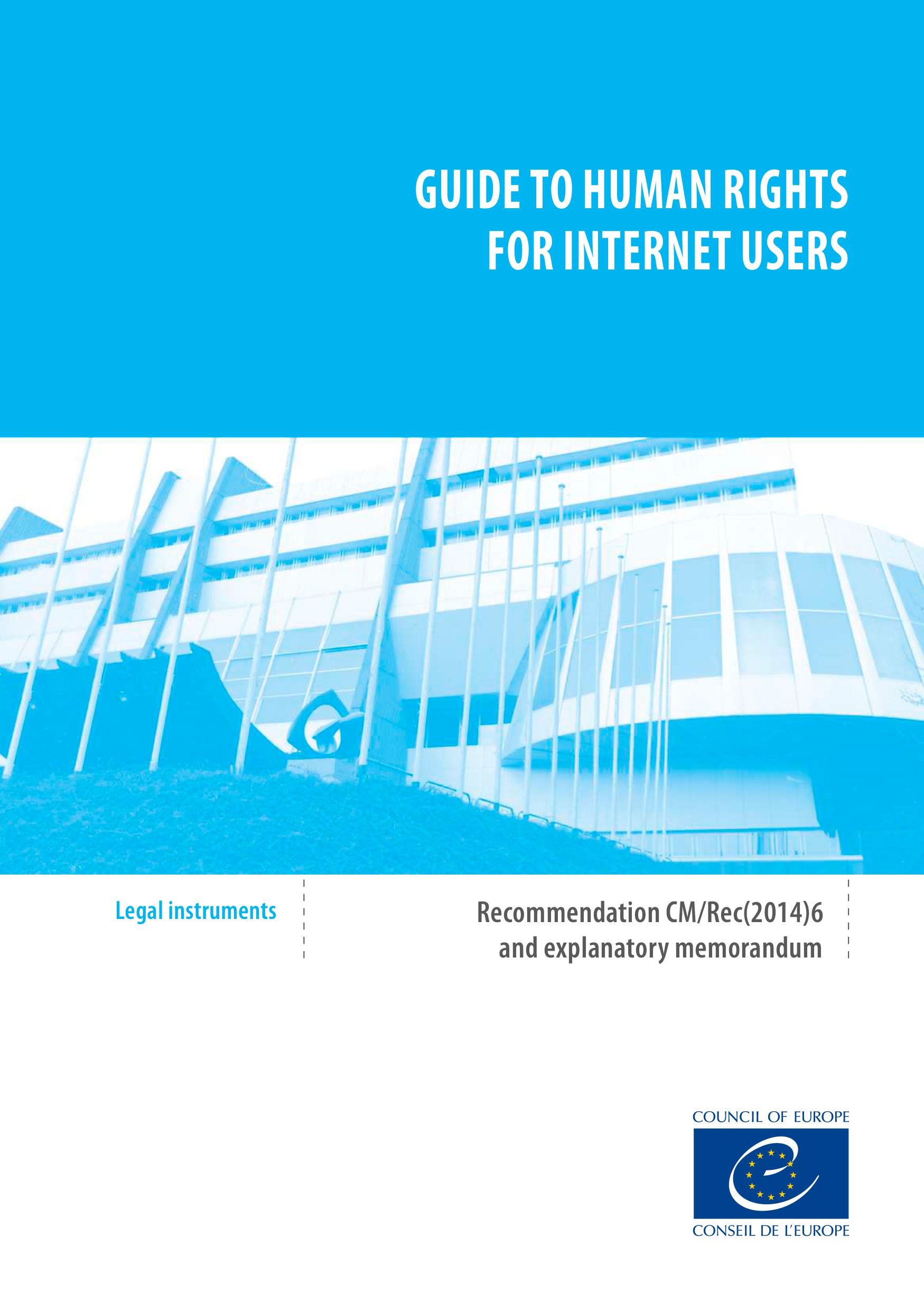Guide to Human Rights for Internet Users

The guide was designed as a tool to help educate individual internet users on their online rights, as well as to encourage governments, public institutions, and corporations to assume responsibility to appropriately protect human rights online.
Read also the Recommendation of the Committee of Ministers to member States on a Guide to human rights for Internet users and the Explanatory Memorandum.
Image © Shutterstock
In the Guide to Human Rights for Internet Users adopted on 16 April 2014, the Committee of Ministers of the Council of Europe laid down the basic framework of principles to protect the fundamental human rights guaranteed by the European Convention on Human Rights for all internet users. The guide was designed as a tool to:
- be used by individuals and to be relied upon when facing difficulties in exercising their rights online;
- help governments and public institutions to discharge their obligations to protect, respect and remedy human rights;
- be a kick-starter for national discussions on protection and promotion of human rights of internet users and their empowerment in internet environments;
- promote corporate social responsibility by encouraging the private sector to act responsibly and with respect for the human rights of individuals they contract with.
The guide emphasises that the protection of the right to freedom of expression, access to information, the right to freedom of assembly, protection from cybercrime, the right to a private life, and the protection of personal data are all equally protected online and offline.
The guide acknowledges that access to the internet enables free exercise of human rights. Except in the case of a court decision, you should not be disconnected from the internet against your will. Access should also be affordable and non- discriminatory.
You are free to express yourself and access information online. The freedom to express and access information and opinions extends to those which may offend, shock, or disturb others as long as they do not incite discrimination, hatred, or violence. Public authorities must respect and protect this right, and any restrictions must pursue a legitimate aim in accordance with the European Convention on Human Rights. You may choose not to reveal your identity online with the acknowledgement that national authorities may take measures which may reveal your identity.
You have the freedom to peacefully assemble and associate, participate in civil society, and join trade unions online. You may also protest peacefully online, with the acknowledgement that blocking or disrupting service or causing property damage are not protected and are subject to legal consequences.
You have the right to privacy and a family life online, including but not limited to protection of personal data and respect for confidentiality. Personal data may only be processed or transferred to third parties with your informed consent. General surveillance or interception is not permitted, except in exceptional circumstances as prescribed by law, such as a criminal investigation.
Your general right to education includes online access to information concerning the free exercise of your rights and freedoms on the internet.
If you are a child or young person, you are entitled to special protection while using the internet. You have the right to have content which compromises your dignity, security, privacy, or future reputation or interests deleted in a short period of time. You are also afforded special protections with regards to physical, mental, and moral welfare, such as regarding sexual exploitation and abuse.
The guide outlines that individuals have the right to an effective remedy when human rights are restricted or violated. This remedy should not necessarily resort to immediate legal action, and it should be accessible and affordable. National authorities are obligated to protect internet users from criminal activity committed on or using the internet. Internet service providers, online content providers, and other companies and public authorities should also provide easily accessible information about rights and possible remedies. The right to a fair trial within a reasonable period of time by an independent and impartial court extends to charges of criminal offenses committed online. These cases may also be brought before the European Court of Human Rights after all domestic remedies have been exhausted.

"Everyone has the right to freedom of expression"
Art. 10 European Convention on Human Rights



